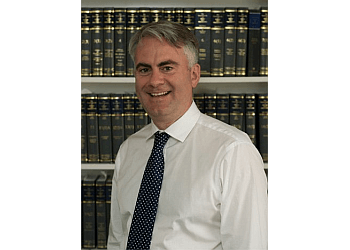Specialist advocate is a cross-breed status that permits a specialist in the Unified Realm and Hong Kong to address clients in higher courts in procedures that were generally held for lawyers. There is no such thing as the status in most other customary regulation wards where, generally, all specialists have privileges of the crowd in higher courts. The title is likewise utilized in certain purviews to allude to solicitors Southend who lead backing in court (like Northern Ireland) or as a task title.
Beginning
- Generally in the Assembled Realm, specialists took direct of cases and embraced promotion in the lower courts (councils, coroner’s courts, justices’ courts, area courts, and sheriff courts). They couldn’t address their clients in court in the higher courts: the Crown Court, the High Court, the Court of Allure, the Court of Meeting, the Privy Board, and the Legitimate Council of the Place of Masters (today known as the UK High Court). All things being equal, specialists were expected to teach attorneys (in Britain and Ribs) or supporters (in Scotland) to address their clients in court.
- Segment 27 of the Courts and Legitimate Administrations Act 1990, in Britain and Ribs, and segment 24 of the Law Change (Various Arrangements) (Scotland) Act 1990, in Scotland, made a course for specialists to meet all requirements for an award of privileges of the crowd in the higher courts when they have adequate preparation and experience, likely to finishing extra tests.
- The perplexing guidelines and guidelines were loosened up in Britain and Ridges by the Higher Courts Capability Guidelines 2000 to lay out four primary courses to meet all requirements for higher freedoms of the crowd: improvement (preparing, evaluation, and an arrangement of cases); license (insight and a backing evaluation); exclusion (adequate experience); and previous lawyer (called to the bar before 31 July 2000). Higher privileges of the crowd might be allowed for the higher lawbreaker courts, the higher common courts, or both.
Britain and Ribs

Specialist higher court backing has grown altogether since its most memorable authorization by the Courts and Legitimate Administrations Act 1990. Albeit just a small bunch of specialists obtained higher freedoms as the first cluster of backers in quite a while, remembered probably the most senior figures for the lawful foundation of the time, like Sir David Napley, establishing accomplice of Kingsley Napley. Around 4,000 supporters have since been approved for wrongdoing, common, or both. They address a wide range of involvement.
While there has been a consistent development of numbers as of late, the majority of the serious backing is as yet embraced by specialist advocates with numerous long periods of support practice behind them. Some specialist advocates have been working only in higher courts for a considerable length of time (or longer if previous counselors) and have created specific specialisms, for instance in administrative and disciplinary work like Andrew Container KC; in family work, like June Venters KC; in removal cases, like Michael Caplan KC; and somewhere else in different pieces of the crook field, for example, in psychological oppression work and misrepresentation; e.g., Niall Quinn KC.
